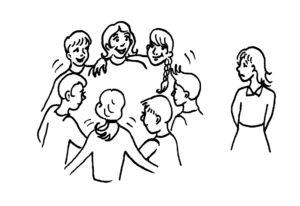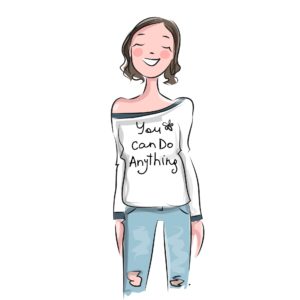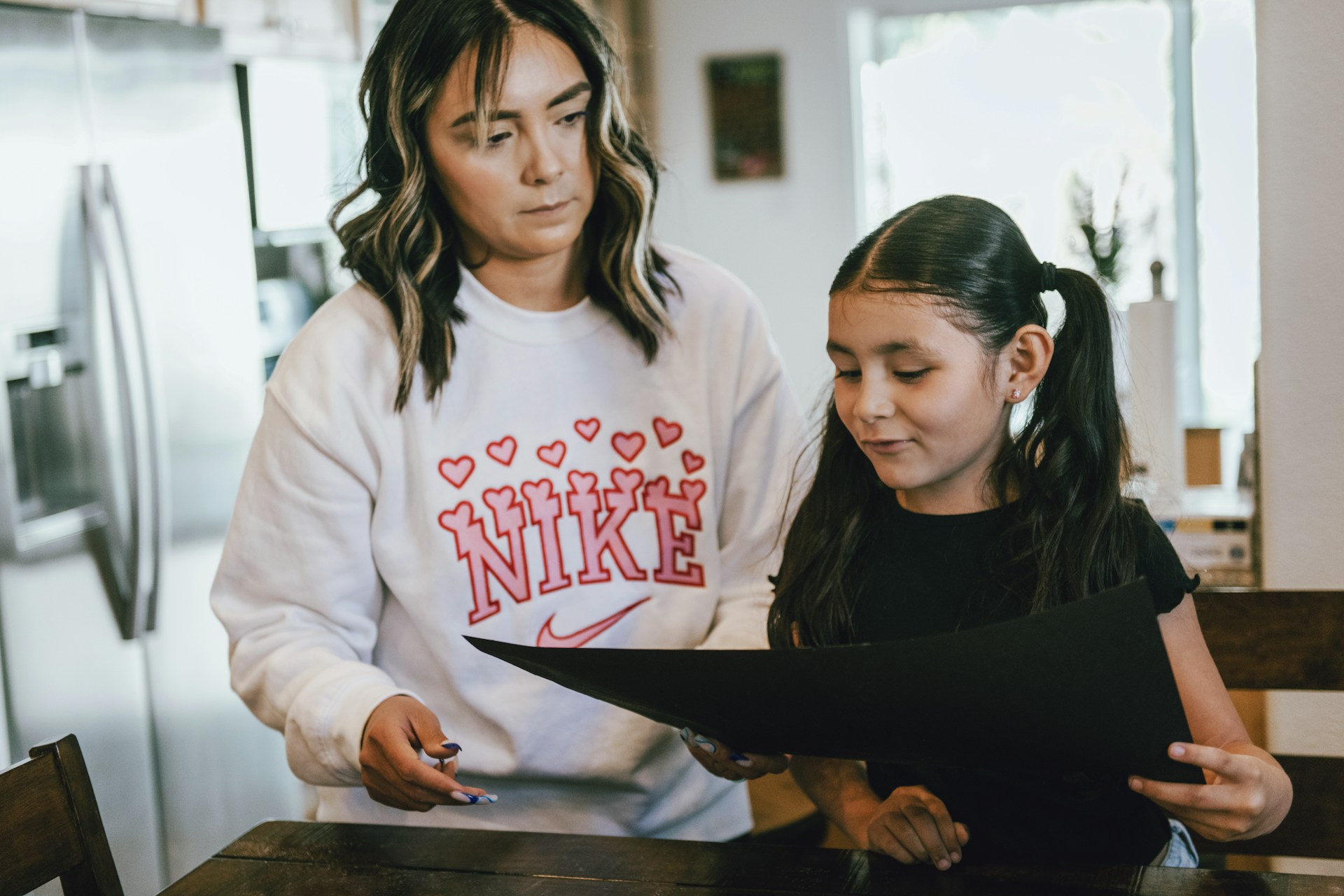We have all had “that friend” at some point in our lives – the friend who never quite fits in with your other friends because of their behavior. Maybe it’s the long, awkward pauses, the inappropriate or out of place comments, the unexpected responses that baffle and confuse others. You may have found that you were hesitant to include that friend in your get-togethers for fear of the question, “Who invited that person?”
 But what if you have come to the realization that you are actually the “awkward friend” in your social circle? Maybe it’s actually you who consistently puts your foot in your mouth, blurts out unexpected comments, struggles to participate in the flow of the conversation, or makes others feel uncomfortable.
But what if you have come to the realization that you are actually the “awkward friend” in your social circle? Maybe it’s actually you who consistently puts your foot in your mouth, blurts out unexpected comments, struggles to participate in the flow of the conversation, or makes others feel uncomfortable.
And maybe you’ve started to realize that you are being left out of invitations and that others may be embarrassed of you. If so, this article may indeed help improve your understanding of what it means to be socially awkward, where social awkwardness originates, how it plays out, and what to do about it.
Defining “Socially Awkward”
The classic understanding or definition of “socially awkward” tends to focus on the way a person behaves while engaging with another person or social group. These individuals will respond atypically to questions, comments, body language, tone, and words.
It is difficult to determine why the response is not in line with social norms, but potential explanations include: difficulty reading social cues, not understanding unspoken social rules or norms, impulse control issues, or a simple unwillingness to abide by known social rules and norms.
It’s fair to say that a socially awkward individual may be behaving atypically due to lack of understanding or awareness, or because they simply don’t care or aren’t bothered by the impact they have on others.
On the flip side, some experts believe that an awkward individual does indeed possess a social style but one that is “unconventional,” as opposed to a deficit or handicap of some sort. If this were true, it would suggest that the individual is actually following social rules and norms, but that the rules and norms aren’t in line with the styles of those around them.
In that case, the individual may be having a hard time adapting to a new standard or learning a new way of engaging. A certain level of stubbornness may be keeping them locked into old ways of engaging.
Classic Characteristics and Experiences of the Socially Awkward
- Feeling as if you don’t know the “rules” in social situations
- Not noticing or paying attention to social nuances
- Being unable to properly navigate introductions and conclusions to conversations
- Having too much inward focus on self and not enough awareness of others
- Social encounters feel like a minefield
- Tripping over words or struggling to find the right words
- Other people may walk away from you or end conversations abruptly
- You suspect that you are being left out of activities or plans
- People don’t seem comfortable with you and may not look you in the eye
Potential Causes of Socially Awkward Behavior
- Social Anxiety Disorder
- Autism Spectrum Disorder
- Past trauma in social situations
- Lack of confidence
- Fear of strangers or meeting new people
- Lack of socialization as a child
Socially Awkward Vs. Socially Anxious
 Social awkwardness differs from social anxiety in that the awkward individual oftentimes doesn’t know that they are behaving differently or may not be concerned or bothered by the opinion of others. The socially anxious individual is very aware, maybe even hyper aware, and worries greatly about the image that they portray in social situations.
Social awkwardness differs from social anxiety in that the awkward individual oftentimes doesn’t know that they are behaving differently or may not be concerned or bothered by the opinion of others. The socially anxious individual is very aware, maybe even hyper aware, and worries greatly about the image that they portray in social situations.
Additionally, the DSM-5 categorizes social anxiety as a mental health disorder, defined by a persistent fear of social situations and worry that embarrassing behavior will occur resulting in judgement from others.
Social awkwardness, on the other hand, is not a diagnosis at this time. It is simply a trait, behavior, or relational style. That being said, if an individual becomes aware of their awkward behavior and receives negative feedback from others, there is a likelihood that they could develop social anxiety in response. So to sum it up, although the two are not the same, one can easily become the other over time.
A Potential Purpose?
Oddly enough, the feeling of awkwardness actually has a purpose and a potential benefit to our social lives, with the key word being “potential.” Psychology professor Joshua Clegg believes that the actual feeling of awkwardness exists to act as a red flag of sorts, or a sign that something socially inappropriate is happening.
When an individual behaves a certain way and then feels the discomfort afterwards, that can be used as information to alter future behaviors or interactions. For example, if an individual tells a story that gets a negative response and rolling of the eyes from listeners, they should feel some sort of discomfort or awkwardness at the way they are being received.
That feeling should communicate, “I shouldn’t tell this story moving forward, as it doesn’t seem to land well.” That lesson can be stored away and remembered during the next social encounter, and hopefully implemented.
However, perpetually awkward individuals seem to disregard the red flags and lessons and don’t necessarily apply them to future interactions. It seems as if they continuously do the same behaviors, comments, and responses, regardless of how well it worked the last encounter. So maybe the issue isn’t the inability to behave appropriately so much as the ability to learn from mistakes and failures, and the inability to apply new techniques moving forward.
The Ripple Effect of Social Awkwardness
Unfortunately, there are several negative consequences to being socially awkward. When an individual feels perpetually out of place in social situations, eventually they will begin to avoid them. Or, the individual may find that they are being left out or avoided by others, which also reduces social contact. Eventually, full blown isolation can develop. The void of social connection can be very devastating and not only lead to loneliness and low self-esteem, but hopelessness and depression.
There can also be a ripple effect into the lives of others when an individual begins to isolate due to social awkwardness. It isn’t uncommon for one spouse in a marriage to want to stay home or decline parties or group activities. The other spouse may become frustrated with this preference over time and go out on their own to obtain the social contact they personally crave. The end result is potential conflict between spouses and a breakdown of connection.
Additionally, an awkward parent may not feel comfortable taking their children to birthday parties, school events, or play-dates out of fear and avoidance. The thought of having to endure an awkward encounter with another parent may be just enough to steer a parent into avoidance. This, of course, limits the child’s social development and sets them on a potential course of social struggles.
I’m Socially Awkward: Now What?
- Don’t label yourself
Have you made the mistake of creating your own sign that labels you as socially awkward? Do you find yourself pulling out that badge and fastening it to your shirt before every social gathering you attend?
 When you greet a new person, are you secretly rehearsing, “I am so awkward, everyone will see me mess up or be weird. I can’t communicate like everyone else can. I can’t do this. I should just leave.”
When you greet a new person, are you secretly rehearsing, “I am so awkward, everyone will see me mess up or be weird. I can’t communicate like everyone else can. I can’t do this. I should just leave.”
It’s fair to say that labeling ourselves and using negative self-talk will only worsen an already difficult situation and plummet your confidence to the floor, the place where social awkwardness lives and breathes.
In order to rectify the situation, the label has to come off and go in the trash. The personal trash talking has to be replaced with encouragement and grace for yourself. The scripts should switch to, “I’m going to try my best. I won’t expect perfection from myself. If I make a mistake, I’ll just move to the next thing and let it go. I can do this.” Filling your mind with productive conversation will set the tone for success and empower you to be calmer and more composed.
- Remember the other person
Arguably one of the biggest contributors for social awkwardness is the preoccupation with oneself and lack of consideration for the experience of others. When we become hyper-focused on our body language, tone of voice, words, and other behaviors, we forget that there is actually another person in the conversation besides us. When we become hyper-focused on ourselves, we are leaving the other person out of the conversation inherently.
It only takes a matter of seconds of self-preoccupation before another person starts to feel alone or ignored. Part of the dynamic of a conversation is the back and forth between two individuals. If you are only going back and forth with yourself, you increase the likelihood of behaving inappropriately because you aren’t looking or watching for feedback from the other person; the kind of feedback that directs you on how to behavior or not behave.
To sum it up, you need to watch the other person and pay attention to their response to you in order to avoid being awkward. You can’t do that if you are oblivious to them or are ignoring them.
- Plan ahead for conversation
 Although it may sound strange, having pre-planned questions, comments, greetings, and stories actually reduces the likelihood of being awkward. Part of the core of awkwardness comes from not knowing exactly what to say in a given situation and therefore saying nothing.
Although it may sound strange, having pre-planned questions, comments, greetings, and stories actually reduces the likelihood of being awkward. Part of the core of awkwardness comes from not knowing exactly what to say in a given situation and therefore saying nothing.
Dead silence generally makes other people uncomfortable, and they will try to find ways to fill it. That being said, it’s not fair to put the responsibility of carrying a conversation on other people. It should be shared as equally as possible. You may ask, “How do people carry a conversation?” That leads us to the next tip:
- Show interest in other people
The whole point of conversing with other people or being in a group is to connect with others. Awkward people tend to talk about themselves or random facts, and this makes it hard for the interaction to continue for long.
The next time you have an awkward encounter, think back to how much interest you actually showed in the other person. It probably wasn’t a lot. In the future, try asking questions about them, even if they are simple and superficial. It could be as elementary as, “Have you been to this restaurant/person’s house before? How do you know the host of the party?”
People love to talk about themselves and asking them questions gives them a platform to do so. They will appreciate your interest and you will find little ways that you can relate and connect.
- Don’t be afraid to have fun
One of the best ways to diffuse awkwardness is to make a joke about it. A simple comment or joke eases the tension and gives the other person a sense of comfort that you are aware of yourself and don’t take yourself too seriously.
Humility is a very endearing quality and being able to be honest about yourself causes people to feel safer around you. Instead of the other person feeling like they are walking on eggshells around your behavior and wondering if they should say something, they instead feel connected to you. Also, don’t be afraid to keep a smile on your face. A blank stare or a frown is hard to talk to and won’t attract positive attention from anyone.
- Build your social skills
Challenge yourself in small bits. Go to a place of business and order a beverage while looking someone in the eye. Once that feels manageable, ask the server how they are doing. Next, you may try to add a sentence or two to the conversation, the idea being that you don’t avoid all interactions, yet you don’t throw yourself in to the deep end so to speak, and then become overwhelmed.
Christian Counseling for Socially Awkward Behavior
Hopefully this article has been helpful in shedding a little light and understanding on the subject of social awkwardness. At the end of the day, we all share the need to connect and to experience life with others.
Even if you have a tendency towards being socially awkward, it doesn’t have to stop you from having fulfilling and deep relationships with others. With a few good tools, a positive support system, and a good amount of effort, you can have the relationships you have always wanted for yourself.
If you’d like some help learning how to be less socially awkward or how to build meaningful, healthy relationships, feel free to contact me or one of the other counselors listed in the counselor directory above.
“Left Out”, Courtesy of rebeccadevitt0, Pixabay.com, CC0 License; “Abandoned”, Courtesy of Johnhain, Pixabay.com, CC0 License; “Bubble gum girl”, Courtesy of RobinHiggins, Pixabay.com, CC0 License; “You Can Do Anything”, Courtesy of Lavnatalia, Unsplash.com, CC0 License,/div>





